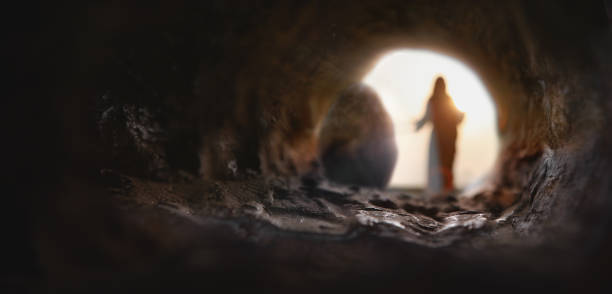During the shortest days of the year in the Northern Hemisphere, I went on retreat at a monastery. Surrounded by darkness and quiet, I prayed about the coming of the light. For most of my life, my faith was intertwined with seeing and enjoying the beauty of light, until I began to suffer from photophobia. As the power of light intensified and became less than tolerable, I had to reassess much about the meaning of “God as Light.”
I remembered that when I was in high school or so, I told my friends my eyesight was so bad that I expected to be blind in my 40s. I do not remember where the idea came from, except that I understood my vision was worse than most people I knew and seemed to get worse every year; besides others in my immediate family, I knew no one else as highly myopic as me.
Yet, when I was diagnosed with a progressive eye disorder when I was 41 years old, I did not understand that I was experiencing the decline of my eyesight. It took a while for me to understand that, unbeknownst to me, I had silently crossed from a time where I could see fine with my glasses, into a phase of life when blur, visual distortions, floaters and light-sensitivity would become my norm.
It has been a little over a year now since the eye doctor told me about the eye disorder—progressive myopic degeneration—which is a lot like macular degeneration and is caused by the thinning of my retinas. The condition could be due to aging, or my retinas might have been damaged during an accident I survived 17 years ago; there is no way to know for sure.
Right now I am far from legal blindness and a lot of my vision can be improved with corrective lenses. Yet other visual symptoms are distressing. Bright days and bright lights now can feel as if a flashlight is shining into my face. I wear tinted glasses and hats most of the time. I am learning to recognize people by colors, shape and movement.
I really love people, yet I probably seem less friendly and more withdrawn than before. Now I avoid going out, but when I must and am in a crowd, I gaze downward and hold a white ID cane to indicate that I am visually impaired. I ask strangers to read signs to me, to tell me about what is down the path. I need help, kindness and patience. I am happy to reject what I do not need: pity and unsolicited advice.
I deal with more strain and fatigue and find myself avoiding ordinary tasks. A lot is difficult: taking walks, reading, writing, data entry, cooking, bicycling, being in new places, driving a car. Some things—such as driving—I am learning to live without.
Before these changes, I never imagined that light would cause me suffering.
I have known Light to be a name for God. Throughout the Bible, light is mentioned 295 times. Messages of light have formed me. Light once offered me solace, revealed beauty, provided clarity and offered a silent reminder of God’s presence and power. The rituals of lighting and extinguishing a candle were as invocation and benediction to my times of prayer. Watching sunrises and sunsets, noticing the light dance across a landscape, studying rays falling through treetops, noticing the hushed power of one small light glowing across miles: all of this provided wonder and awe to my life.
Shortly after my diagnosis, I became painfully alert to every mention of light, vision, eyes and the curing of blindness mentioned in the liturgical rhythms that form my days. I frowned and felt tears flood as I sang the joyful notes of “I once was blind but now I see.” My body tensed when I said “True light from true light” in the Nicene Creed. Metaphors that used to give my faith meaning clashed with my annoyance with light.
Yet I did not want to resent the themes of darkness and light that once offered solace. I wondered: Could I still honor and love Christ the Light?
Gradually, I gained peace. I now understand that even though my relationship with light is shifting, my relationship with Christ the Light is not. What is different is my body. What has not changed is the wonder of the Light of the world. And the power of remembering permits me to continue to revere the light: I can remember the times when light filled me with joy and awe, when I encountered God as a Light shining bright.
Remembering can foster faith. And remembering keeps me in union with the Body of Christ—the body where we all are broken, wounded, suffering and known, redeemed and beloved. Once, when I was tearfully talking to my eye doctor about my vision loss, she reminded me that practically everyone will be disabled at some point. I try to remember this, too. In my body—redeemed and disabled—I am connected to everybody. Remembering this builds communion.
Perhaps donning my tinted glasses and billed hat is now a form of prayer for me just as watching the dancing light once was. My accommodations allow me to reverence the power of light. Through every adjustment, I am admitting that I am powerless over my condition and I am allowing God to be in control. There is no shame in this, only mercy. I am surrendering to the power of Christ’s presence and glory–Christ who encourages me through my eye strain and encourages me to go out and “see what I can still do.” Now matter how my eyesight may shift, I pray that my faith in God’s goodness persists.








